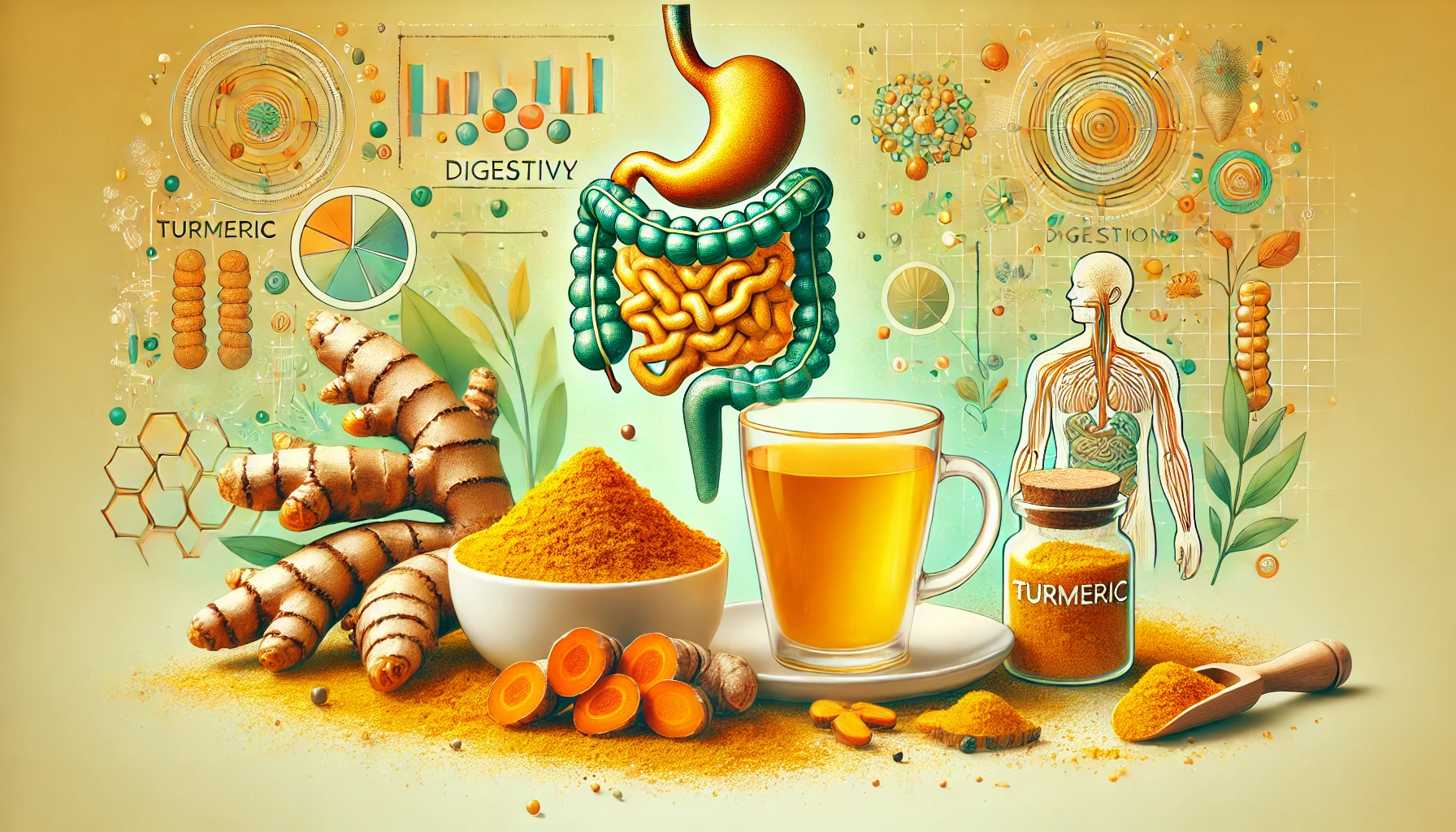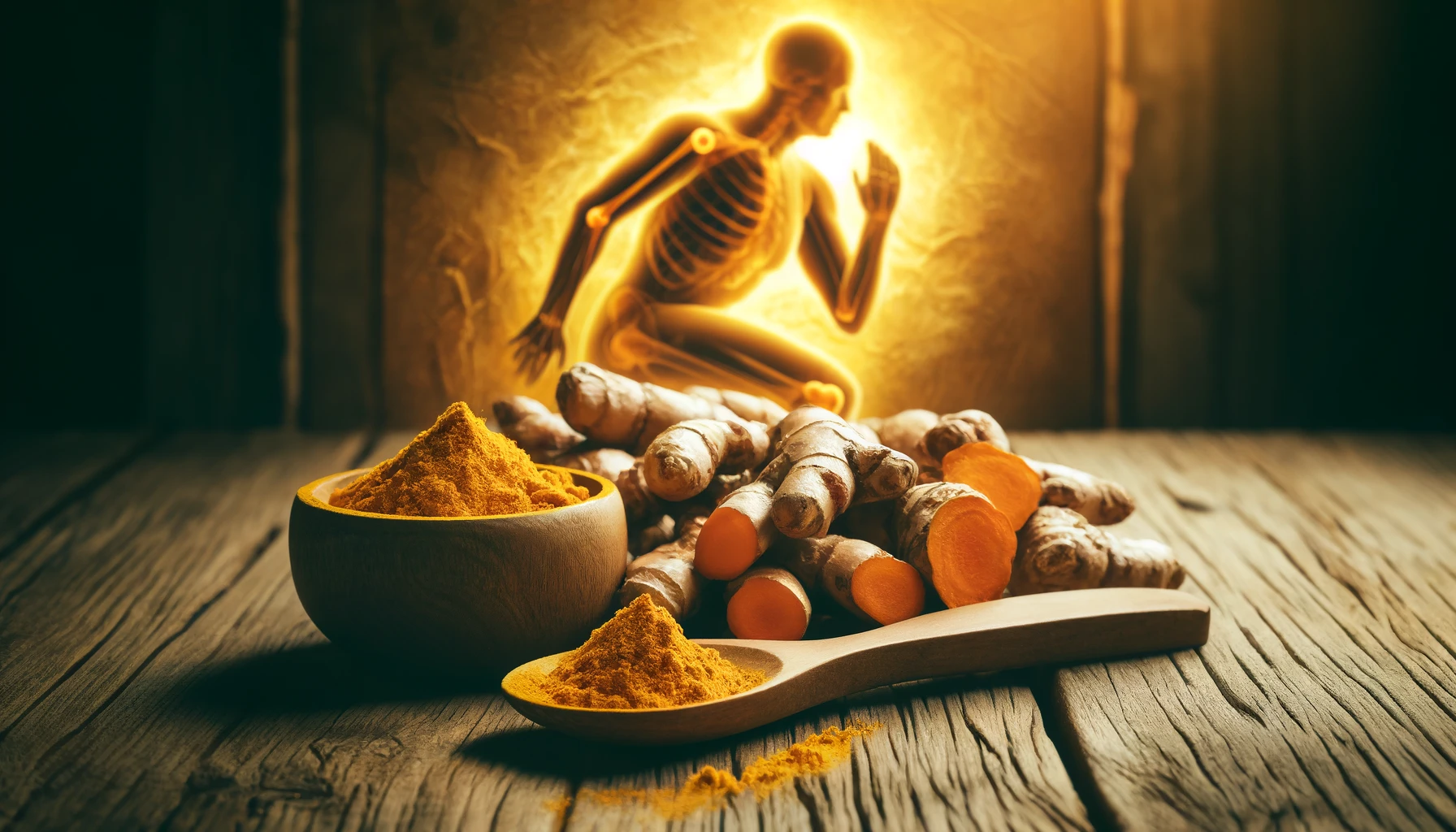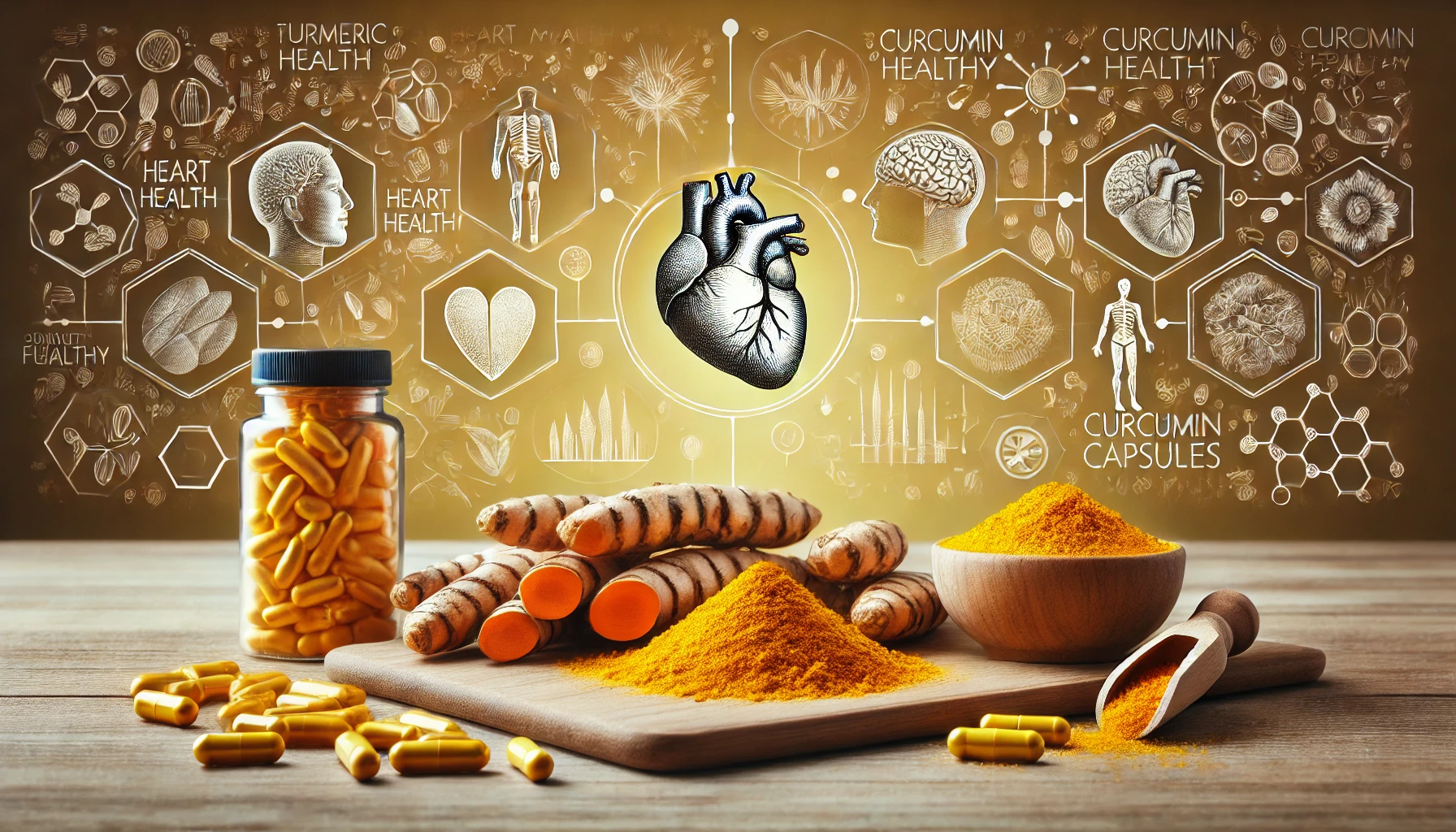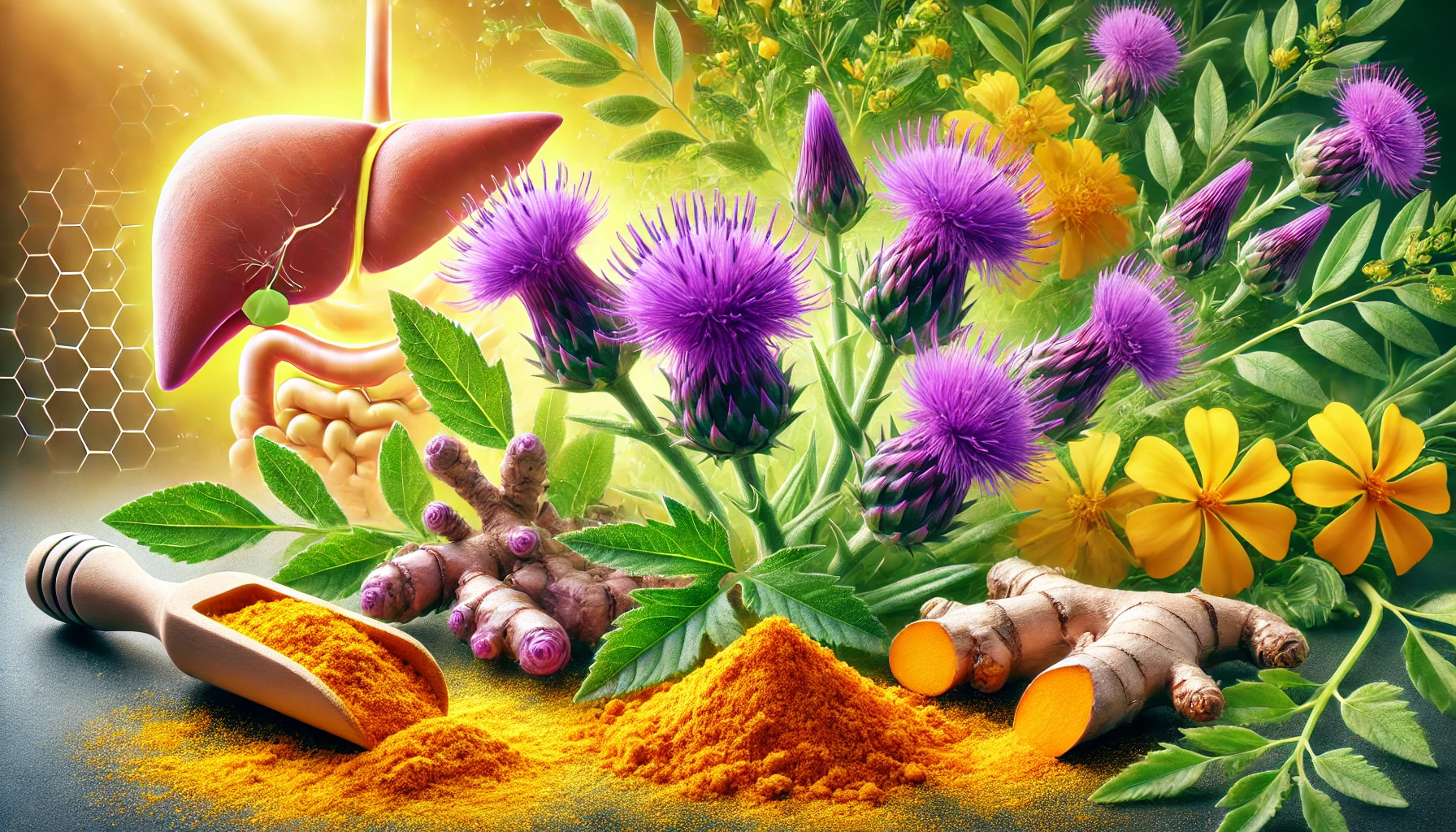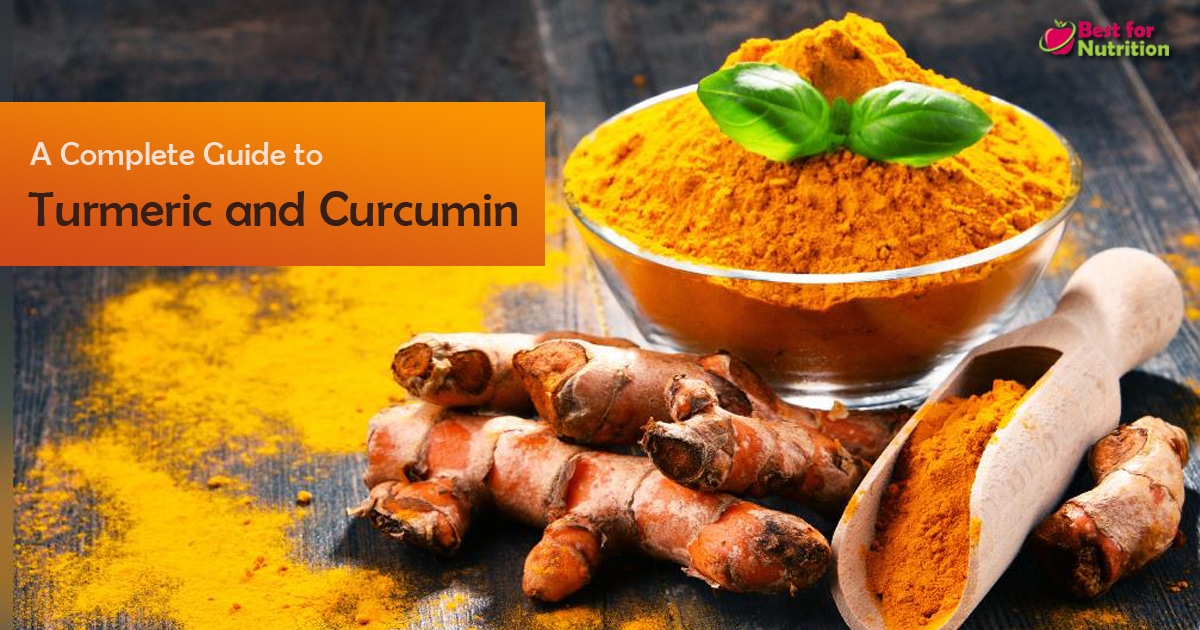In today’s competitive and busy lifestyles, stress and anxiety are common problems. But over time, they wreak havoc on our health.
Rather than resorting to prescription drugs with undesirable side effects, natural remedies, such as using turmeric for anxiety, are well documented to be quite effective.
Apart from being a potent antioxidant and anti-inflammatory compound, turmeric is known to improve anxiety and depression symptoms.
Read more to get a deeper understanding regarding how turmeric works in reducing anxiety, how it should be consumed, possible side effects, and more.
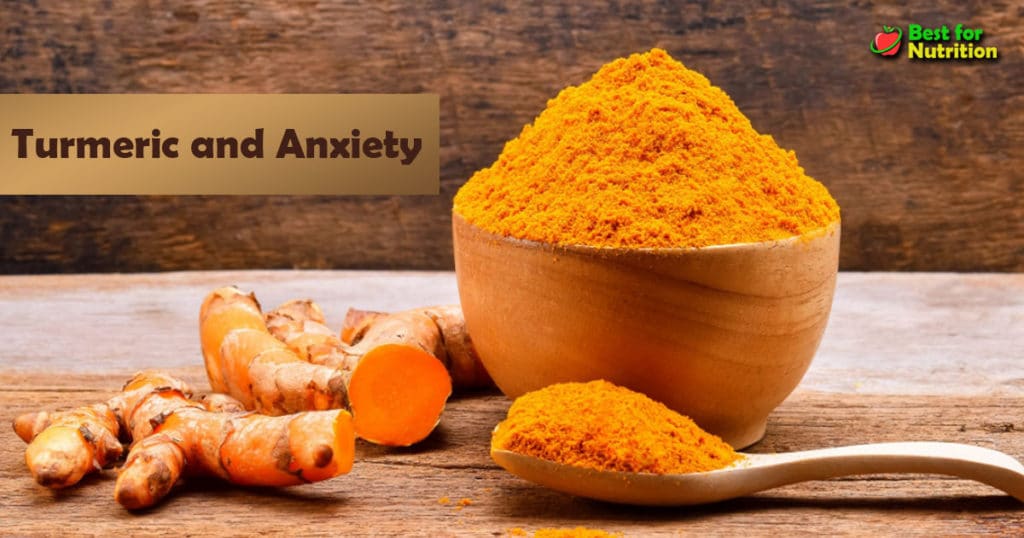
How Turmeric Helps with Anxiety and Depression
Turmeric, the edible root of the Curcuma longa plant, is a bold yellow spice used profoundly in traditional Asian dishes. Owing to the active ingredient, curcumin, turmeric has found its way in several herbal medicines since ancient times.
There is abundant research on turmeric suggesting that it can help in managing anxiety and depression.
It can work on its own and can be equally effective when used in combination with additives like saffron (1).
Let us explore what research says about the different therapeutic ways in which turmeric works to treat anxiety and depressive behavior.
Curcumin functions as an Anxiolytic
A study was conducted on 56 patients suffering from major depressive disorder (2). They were put on BCM-95 Curcumin supplementation for 8 weeks.
It was observed that there was a marked reduction in the overall symptoms of depression and that the supplement was showing anxiolytic properties.
In fact, those suffering from atypical/common depression showed better results from curcumin treatment. The anxiolytic effects of curcumin can be attributed to its potential to normalize certain physiological pathways.
Summary: Curcumin supplements can reduce depression effectively owing to their anxiolytic property.
Curcumin has Anti-inflammatory Properties
Medical literature is filled with studies that show a positive correlation between chronic inflammation and depression. This means that lowering inflammation can treat depression.
Recent research has revealed that curcumin has anti-inflammatory properties, which in turn, can prove beneficial in treating depression.
It was observed that individuals who were given 1000mg of curcumin for a period of 6 weeks showed a decrease in levels of inflammatory cytokines like interleukin-1β and TNF-𝝰 (3).
Another important finding was that these people showed an increase in the levels of Brain-Derived Neurotrophic Factor (BDNF) due to the curcumin supplementation. BDNF is essential for learning, memory, and focus. Often one experiences a lack of focus while suffering from depression.
Summary: As chronic inflammation and depression are linked with each other curcumin works in relieving depression by its anti-inflammatory effects.
Curcumin Increases Serotonin Levels
Patients with depression have shown high levels of an enzyme called monoamine oxidase.
Curcumin has an inhibitory effect on monoamine oxidase.
Besides, turmeric is known to stimulate the release of dopamine and serotonin, the two hormones known to set one in a good mood.
In a trial, a 2 week-long treatment with turmeric was done on mice suffering from PTSD (Post-traumatic Stress Disorder) (4). The mice showed a reversal in serotonin dysfunction thereby, suggesting that turmeric would be extremely beneficial in managing psychiatric problems.
A similar study was done on mice to understand the antidepressant mechanism of curcumin when used along with other antidepressant drugs like venlafaxine, fluoxetine, and bupropion (5).
It was seen that curcumin and piperine not only improved the anti-immobility effect of antidepressant drugs but also synergistically increased the serotonin (5-HT) levels.
Summary: Curcumin has shown to increase the levels of happy hormones like serotonin thereby, is helpful in treating psychiatric issues.
Curcumin Enhances DHA Synthesis
DHA, or docosahexaenoic acid, is a type of omega 3 fatty acid and is regarded as an essential for brain health. It has an important role in the normal function and development of the brain as well as neuroprotection.
Anxiety has been quite commonly observed in those deficient in DHA. ALA (alpha-linolenic acid) is a precursor of DHA which means it is essential in the formation of DHA.
Turmeric has shown to improve DHA synthesis from ALA and increase the levels of enzymes that synthesize DHA, thereby, causing an increase in DHA levels in the brain (6).
Summary: DHA is vital to keep our brain healthy and curcumin has proved to increase DHA levels. Hence, curcumin has shown to be beneficial in maintaining normal brain function.
Curcumin Enhances the Production of Glutathione
Curcumin has shown to improve glutathione synthesis. Glutathione is an important free radical scavenger of the brain that reduces oxidative stress and therefore, is essential for keeping the brain healthy.
Several animal studies were conducted to investigate the antioxidant activity of curcumin and it was observed that curcumin helped in the free radical scavenging activity by increasing the levels of glutathione through increased rate of glutathione synthesis (7).
Curcumin can even heal the damage caused by heavy metal toxins.
Summary: Curcumin reduces the levels of free radicals in the brain by inducing increased glutathione production.
How to Use Turmeric for Anxiety
On the basis of the current research results, there is a definite scope of including turmeric in the mainstream treatment protocol for anxiety and depression.
Nevertheless, you should inform your doctor if you are planning to introduce turmeric as a self-medication or herbal option for anxiety or depression.
It is totally unwise to consider turmeric as a substitute for the antidepressants prescribed by your doctor.
Take it as a Supplement
You can search your local health stores for turmeric supplements or even shop for them via online pharmacy stores.
They are available in different forms like powders, extracts, or tinctures.
The form of supplements needn’t bother you as you need to be more concerned about the percentage of curcumin in the product. The higher it is, the better.
Ideally, it should be around 95% for maximum benefits although pure curcumin extracts, which means 100% curcumin, would be the best choice.
Incorporate it in your meals
Adding turmeric powder into your meals can be one of the easiest ways of taking turmeric.
Cooking with turmeric may not be as effective as oral curcumin supplements.
Besides, the amount of curcumin present is never labeled on most of the commercially available kitchen turmeric powder so it is difficult to ascertain the exact amount to be added for maximum benefits.
Yet, if you chance upon high-curcumin turmeric, you can add one teaspoon of it to enjoy optimal results.
Don’t Forget to Add Black Pepper
One of the major problems with curcumin or turmeric supplementation is their poor bioavailability. There are certain ingredients that enhance the absorption of turmeric. Of these, black pepper and dietary fat are quick and easy to add to your food along with the turmeric.
Adding black pepper: Black pepper contains an important compound called piperine. Studies have suggested that piperine can improve the absorption of several compounds (8).
Hence, piperine is added to different supplements like curcumin supplements for enhanced absorption, increased efficiency, and quicker results. Another study conducted in 2013, revealed that curcumin supplements when combined with piperine were more effective in treating depression than curcumin alone (9).
Taking separate piperine supplements along with turmeric supplements can be an option or else you can add black pepper to turmeric-loaded meals. Make sure to include at least one-fourth teaspoon of black pepper in your meal or at least 20 mg of piperine if you are using supplements.
Adding dietary fat: Curcumin is a fat-soluble compound. Hence combining turmeric with a source of dietary fat such as oil, butter, nuts, avocado, etc helps improve its absorption into our system so that we can effectively reap its multiple health benefits.
Summary: You can add turmeric powder to your daily cooking to incorporate it into your diet. Add a pinch of black pepper and/or some healthy fat for enhancing the absorption of curcumin. Turmeric or curcumin supplements are a quick way to take in adequate amounts of this golden spice, especially if its taste in foods do not appeal to you.
Possible Side Effects and Risks
Turmeric or curcumin supplements are quite safe for ingestion. Nevertheless, there may be few possible side effects even when used in therapeutic doses. These can be:
- Loose motions
- Stomach ache
- Nausea
- Vomiting
To minimize the risk of developing these side effects you can start off with a small dose and then increase it in a gradual manner. Make sure that you are not crossing the dose range mentioned under the heading of the recommended dose on the packing of the supplement.
Though high quantities of turmeric pose no serious harm to your health, it is always advisable to follow the dosage guidelines given by the manufacturer or consult your doctor.
If your doctor has already prescribed you antidepressant drugs, make sure that you consult your doctor before adding curcumin or piperine supplements to your routine. This is to avoid any unwarranted interaction of the supplements with the drugs.
If you are pregnant or are breastfeeding, you should never use these supplements as their safety during such conditions is not yet confirmed.
Those who have gallbladder stones and biliary obstruction should consult their physician before using these supplements.
Summary: Though the side effects are very mild, it is ideal to stick to the doses mentioned on the packaging of the supplement. Never forget to ask your doctor’s opinion before taking turmeric supplements along with previously prescribed antidepressants.
The Final Note
So, can turmeric help you fight anxiety or depression?
Though it is not certain whether turmeric can completely cure depression, there have been several studies that indicate the curcumin supplements definitely serve as a safe and effective complementary treatment option in battling anxiety and depression.
Turmeric supplements can increase the levels of ‘feel-good’ hormones and improve DHA synthesis. It can also increase glutathione production due to which these curcumin supplements can improve cognitive function and can maintain a healthy neurotransmitter balance.
Hence, if you need a safe and herbal supplement with anxiolytic and antidepressant action, use a combination of turmeric and piperine supplements.
Remember to visit your doctor at the earliest should you experience any adverse effects after the commencement of curcumin supplementation.
You may expect similar experiences when you replace one medicine with a natural supplement.
If you find no improvement in your mental health even after having curcumin supplements, you should get it checked with your doctor as you may be in need of a few adjustments in your doses or a different therapy altogether.

